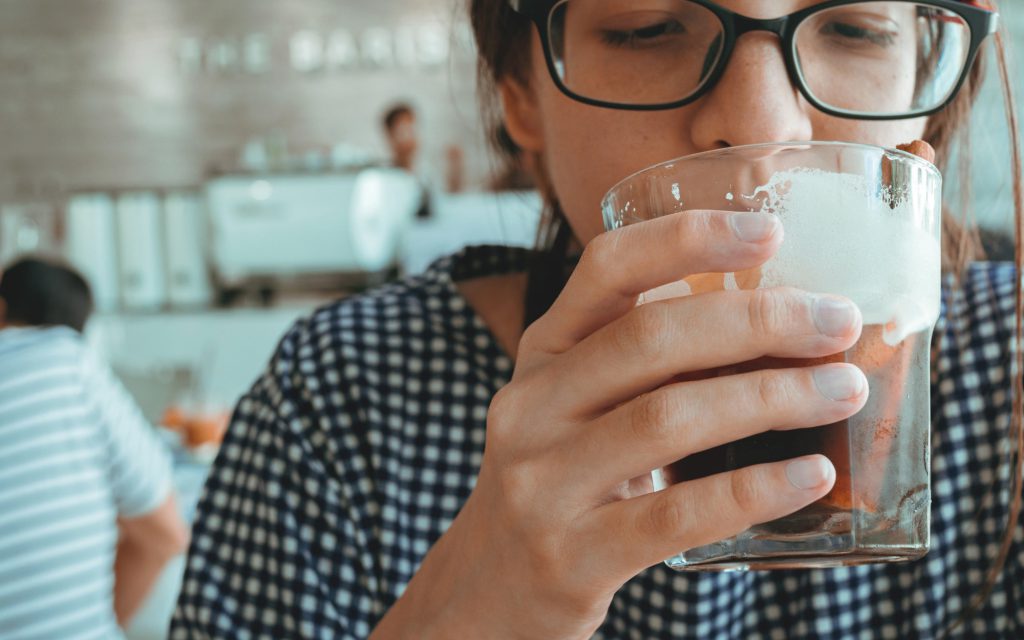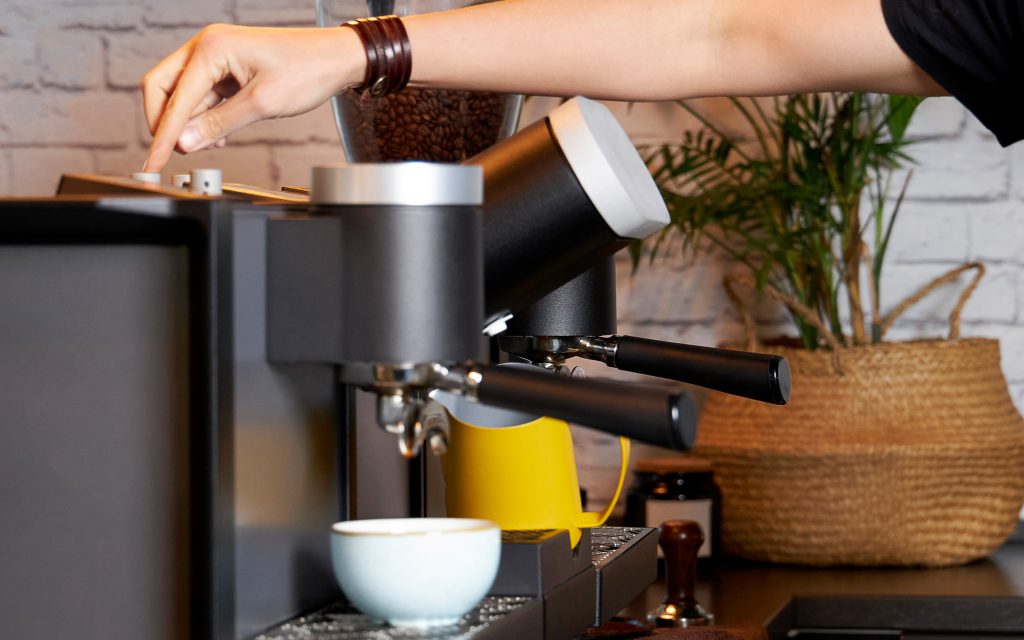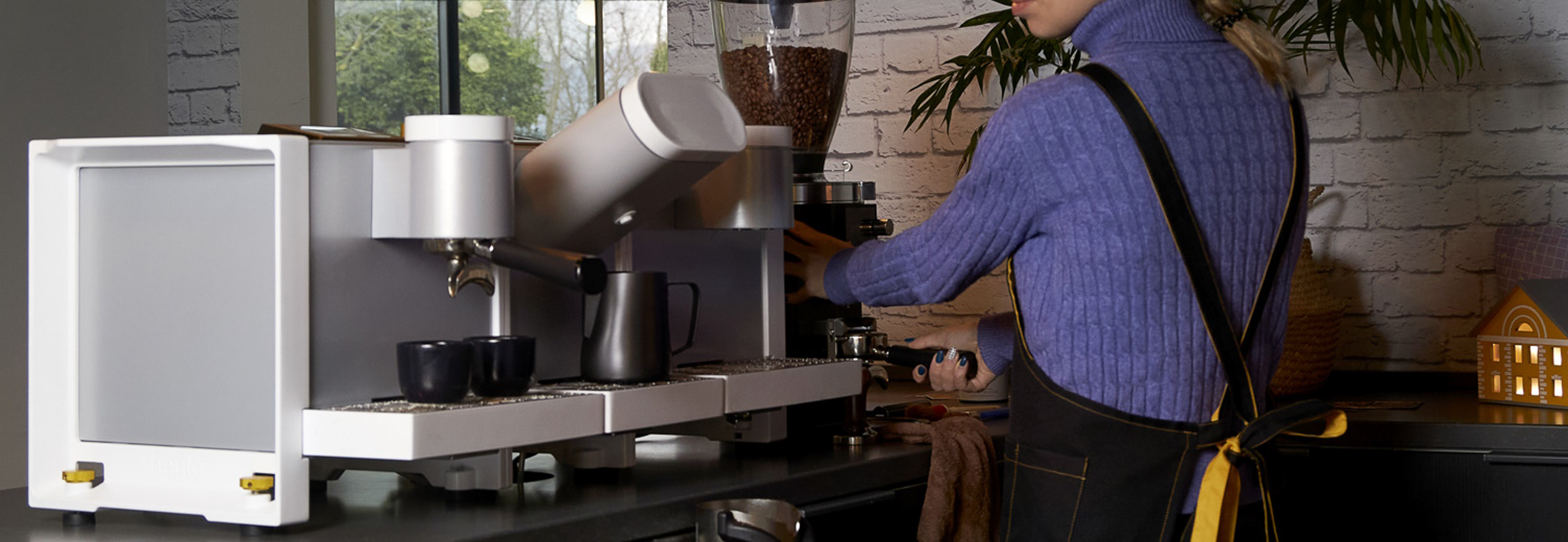How to find sustainable specialty coffee shops and roasters
Sustainability continues to be a pressing issue in the specialty coffee sector – and for good reason. With demand for more sustainable coffee continuing to grow, it’s essential that industry professionals and stakeholders limit their environmental impact as much as possible.
This includes coffee shops and roasters. In recent years, we have certainly seen an uptick in the number of cafés and roasters implementing more socially and environmentally responsible business practices.
However, from the perspective of the consumer, it’s not always easy to spot a truly sustainable coffee shop or roaster. To learn more, I spoke to two industry professionals who have a specific focus on social and environmental sustainability. Read on for more of their insight.
You may also like our article on whether you can run a zero-waste coffee shop.

What does “sustainable” really mean?
The term “sustainability” has become something of a buzzword in recent years. The word is commonly used in marketing and branding, including in the specialty coffee sector. However, without having a focus on its clear definition, it can be all too easy to lose sight of its true meaning.
The often-cited Brundtland Report from the International Institute for Sustainable Development defines sustainability as meeting “the needs of the present without compromising the ability of future generations to meet their own needs”.
The definition is certainly broad, but it is often split into three key areas: environmental, social, and economic.
Within these three categories, there are an endless number of ways to improve sustainability. Looking specifically at the coffee industry, these include:
- Reducing energy consumption
- Improving coffee farmers’ income
- Minimising waste production
- Reducing carbon emissions
- Improving gender equity, particularly at farm level
Max Dubiel is a co-founder of Redemption Roasters in the UK. The company teaches UK prison inmates how to roast coffee, with the overarching aim of reducing reoffending rates and helping former inmates find stable work.
“[As a business], with every decision you make, you need to make sure that you change something for the better,” he says. “Sustainability is not just the responsibility of charities and non-profit organisations, but for businesses and individuals, too.”
Looking at sustainability across the sector
When we talk about sustainability in coffee, many people often point to production and export as the two main areas of focus.
There are several reasons for this. One of the most prominent is that millions of smallholder coffee farmers live below the poverty line. Therefore, they are unable to sustainably support their families. Moreover, in certain producing countries, women and girls disproportionately carry out most of the physical labour associated with coffee farming, yet receive less financial responsibility.
In terms of environmental impact, meanwhile, there are some pressing issues which need to be addressed in the production and trade of coffee. It should be noted, however, that the vast majority of these issues are a result of large-scale agriculture. This means these issues are not drastically influenced by smallholders.
A 2021 study from University College London found that after the export of coffee, production was responsible for the second-highest total volume of carbon emissions across the supply chain. This is because shipping coffee relies on fossil fuel usage, as it is generally transported on large freight vessels.
As well as greenhouse gas emissions, other sustainability issues in coffee production include:
- Deforestation
- Incorrect application of fertilisers and pesticides
- Loss of biodiversity and habitats for local wildlife
- Pollution from wastewater
However, beyond coffee production and shipping, roasters and coffee shops also have a responsibility to minimise their environmental impact and be more socially conscious.
Although it’s impossible to know for sure, some researchers claim that global coffee shops’ energy consumption accounts for 45% of the industry’s carbon emissions.
Whether these findings accurately represent the wider coffee sector is difficult to tell. However, it certainly shines more of a spotlight on the role of coffee shops and roasters to implement more sustainable business practices.

Why is sustainability so important to consumers?
In recent years, it seems as though consumers have become more socially and environmentally conscious than ever before.
According to Deloitte’s 2022 How consumers are embracing sustainability survey, one in three UK adults claim to have stopped buying products because of ethical or sustainability-related concerns about specific brands. Similarly, 40% of those surveyed also said they choose to buy from brands that have environmentally friendly practices and values.
So why has sustainability become such an important purchasing factor for consumers?
A 2022 study from First Insight and the University of Pennsylvania found that a desire to become more environmentally-conscious is the main reason why consumers purchase sustainable products and brands. Moreover, willingness to spend more on sustainable products was noted across all generations – not just millennials and Gen Z (who are typically considered to be more eco-conscious than their older counterparts).
There are many reasons for this change in consumer behaviour. However, growing concerns about the impact of climate change is arguably the biggest one – including on the coffee industry.
In January 2023, a study published in PLOS Climate found that over the past four decades, climatic conditions which can reduce coffee yields have become more frequent. These include higher temperatures, as well as more erratic rainfall and humidity levels. Researchers predict this could result in “ongoing systemic shocks” to global coffee production.
The need for more transparency about sustainability
When it comes to individual responsibility, specialty coffee consumers can certainly implement some more sustainable lifestyle practices. For example, coffee drinkers can:
- Take reusable cups to coffee shops more frequently
- Reduce their use of single-use cups and other takeaway items
- Buy roasted coffee in recyclable, compostable, or biodegradable packaging
- Purchase sustainably-sourced coffee
However, at the same time, we must acknowledge that coffee shops and roasters also have a responsibility to enact more sustainable business practices themselves.
Furthermore, coffee companies should be more vocal about how they are making a positive difference. But, it’s important to emphasise that with this comes the risk of greenwashing. This is when companies or organisations make unsubstantiated claims about their social, economic, and environmental sustainability practices.
While it certainly happens in the coffee industry, greenwashing is incredibly damaging to a brand and should be avoided at all costs. Instead, coffee shops and roasters should honestly inform consumers about their sustainable business practices, and set realistic targets to improve in areas where they can.
Diana Zuluaga is the Marketing Manager at Heylo Coffee, a modular and energy-efficient espresso machine manufacturer.
“[When it comes to sustainability], it’s impossible nowadays for both coffee businesses and consumers to be completely guilt free,” she says. “This is why it’s so important for them to work together to have less of an impact on the environment.”

So, how can consumers find sustainable coffee shops and roasters?
There’s no simple answer to this question. However, a good place to start is simply asking coffee shops and roasters about their business practices. Consumers can look online first – either on websites or social media platforms. If they then have further questions, they can also speak to baristas, roasters, and business owners about what their company is doing to reduce its carbon footprint or support different social causes.
Max suggests using the UN’s Sustainable Development Goals as a basis to understand more about a coffee shop or roaster’s business practices. Some of the UN SDGs include ensuring sustainable consumption and production patterns, as well as taking urgent action to combat climate change and its impact.
Sustainability reports
On a similar note, both Max and Diana highlight the importance of reading impact reports. These are records of a company or organisation’s activities (usually over the course of a year) which document their impact on wider communities and the environment.
The number of B Corp-certified companies is also growing. These are brands verified to meet high standards of social and environmental performance, as well as transparency and accountability.
“Even if companies are not generating high enough levels of impact, they are at least trying to be as transparent as possible, and share all information with the end consumer,” Diana says.
However, Max points out that consumers often need to look at impact reports in detail to fully understand the scope of a business’ sustainable practices.
“It’s really important that you trust the businesses you engage with or buy from,” he says. “We have to become much better at filtering information when it comes to sustainability.”
Ultimately, the responsibility of finding sustainable coffee shops and roasters shouldn’t all lie with the consumer – these businesses also need to be accountable.
Diana explains that Heylo launched its Less Guilty Coffee Map as a resource for consumers to use when looking for sustainable café and roasters.
“We wanted to turn to the coffee community and build something together,” she says. “We want to be impactful in a positive way, but it can be a complicated process.”
Using available resources
As well as relying on information from coffee shops and roasters, consumers can use resources to understand more about what actions companies are taking to improve sustainability.
For example, customers can use the Less Guilty Coffee Map to find coffee shops, roasters, and other social initiatives in the US, UK, Europe, and Australia who are implementing more sustainable practices. These range from having B Corp certifications to paying baristas a living wage to using Heylo’s energy-efficient modular espresso machines.
“We are honoured to be featured as one of the first companies on the map,” Max tells me. “It’s a useful tool for people who are looking for more sustainable and ethical coffee businesses.”
Diana explains that users can also request for coffee shops and roasters to be added to the map.
“Let’s say you visit a coffee shop and see that they are doing something which positively affects the environment or local community,” she says. “You can then propose that we add them to the map, but all new submissions are first verified by Heylo.”

For consumers around the world, looking for more sustainable coffee shops and roasters can be a challenge. However, it’s clear how important trusting the businesses you buy from is.
With this in mind, consumers should use whatever resources are available to them to learn this information, as well as feeling comfortable asking questions about what companies are doing.
Enjoyed this? Then read our article on why recycling single-use coffee cups is so difficult.
Photo credits: PH, Art Direction, Heylo Coffee
Perfect Daily Grind
Want to read more articles like this? Sign up for our newsletter!





